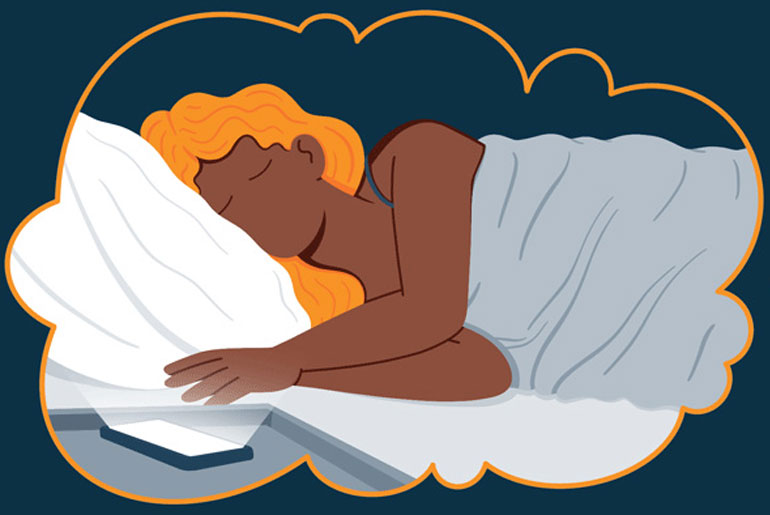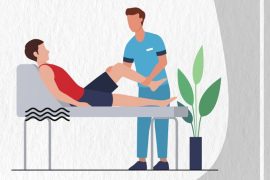Getting enough quality sleep is vital for mental and physical health, as it impacts learning, cardiovascular health, hunger hormone balance, and immune function. Generally, seven to nine hours of sleep per night is recommended, though individual needs can vary based on age, activity level, and health. While sleep deprivation is a common issue, oversleeping—defined as sleeping more than nine hours in a 24-hour period—can also be problematic. Occasional oversleeping, such as after intense stress or illness, is normal and considered recovery sleep.
However, consistently sleeping more than eight or nine hours daily may be a sign of oversleeping. It’s important to understand the causes and signs of oversleeping and how it might affect your overall health. Quality sleep is essential for maintaining overall health and well-being, impacting mental clarity, cardiovascular health, appetite regulation, and immune function. While seven to nine hours of sleep is generally sufficient for most people, oversleeping—defined as consistently sleeping more than nine hours per day—can be a sign of underlying health issues and may have negative consequences.
What Causes Oversleeping?
Oversleeping can be a symptom of various underlying conditions, rather than a standalone diagnosis. Potential causes include:
Medical Conditions:
- Obesity
- Heart Disease
- Diabetes
- Restless Leg Syndrome
- Bruxism (teeth grinding or clenching)
- Chronic Pain
- Hypothyroidism
- Depression or Anxiety
Sleep Disorders:
- Sleep Apnea
- Insomnia
- Narcolepsy
Other Conditions:
- Hypersomnia (excessive daytime sleepiness)
- Delayed Sleep Phase Syndrome
- Parkinson’s Disease
- Dementia
Research Insight: A study indicated that sleeping more than six to eight hours per day was linked to a higher risk of death from heart disease, suggesting a potential health risk associated with excessive sleep.
Signs You’re Sleeping Too Much
Regularly sleeping more than nine hours may be a concern if accompanied by symptoms such as:
- Daytime Tiredness: Persistent fatigue despite extended sleep.
- Grogginess: Difficulty feeling alert or awake.
- Headaches: Frequent or chronic headaches upon waking.
- Decreased Energy: Low energy levels during the day.
- Mood Changes: Irritability or mood swings.
- Difficulty Waking: Trouble getting up from bed even after long sleep.
- Persistent Sleepiness: Feeling unrefreshed and needing more sleep.
Risks of Oversleeping
Consistently oversleeping can have adverse effects on health, including:
- Increased Fatigue: Feeling more tired despite extended sleep.
- Decreased Immune Function: Potential weakening of the immune system.
- Altered Stress Response: Changes in how the body responds to stress.
- Chronic Diseases: Higher risk of heart disease, diabetes, and obesity.
- Increased Mortality Risk: Some studies suggest a link between oversleeping and higher mortality rates.
Managing Oversleeping
If you suspect you’re oversleeping, consider these strategies to improve your sleep habits:
- Avoid the Snooze Button: Limit hitting the snooze button to improve sleep consistency.
- Maintain a Regular Sleep Schedule: Wake up and go to bed at the same time every day, including weekends.
- Use Natural Light: Expose yourself to natural light in the morning and avoid artificial light close to bedtime.
If these adjustments don’t help and you continue to oversleep regularly, seek medical advice. A doctor may:
- Perform a physical examination.
- Review current medications that could affect sleep.
Conduct further testing, including blood work.
- Suggest keeping a sleep diary to track sleep patterns and quality.
- Recommend a sleep study or referral to a sleep clinic to identify possible sleep disorders.
While adequate sleep is vital for health, oversleeping can be detrimental and may signal underlying health issues. Balancing sleep duration and quality is crucial. If you consistently sleep more than nine hours and still feel fatigued, consulting with a healthcare provider is advisable to address potential health concerns.
Disclaimer:
The information contained in this article is for educational and informational purposes only and is not intended as a health advice. We would ask you to consult a qualified professional or medical expert to gain additional knowledge before you choose to consume any product or perform any exercise.








